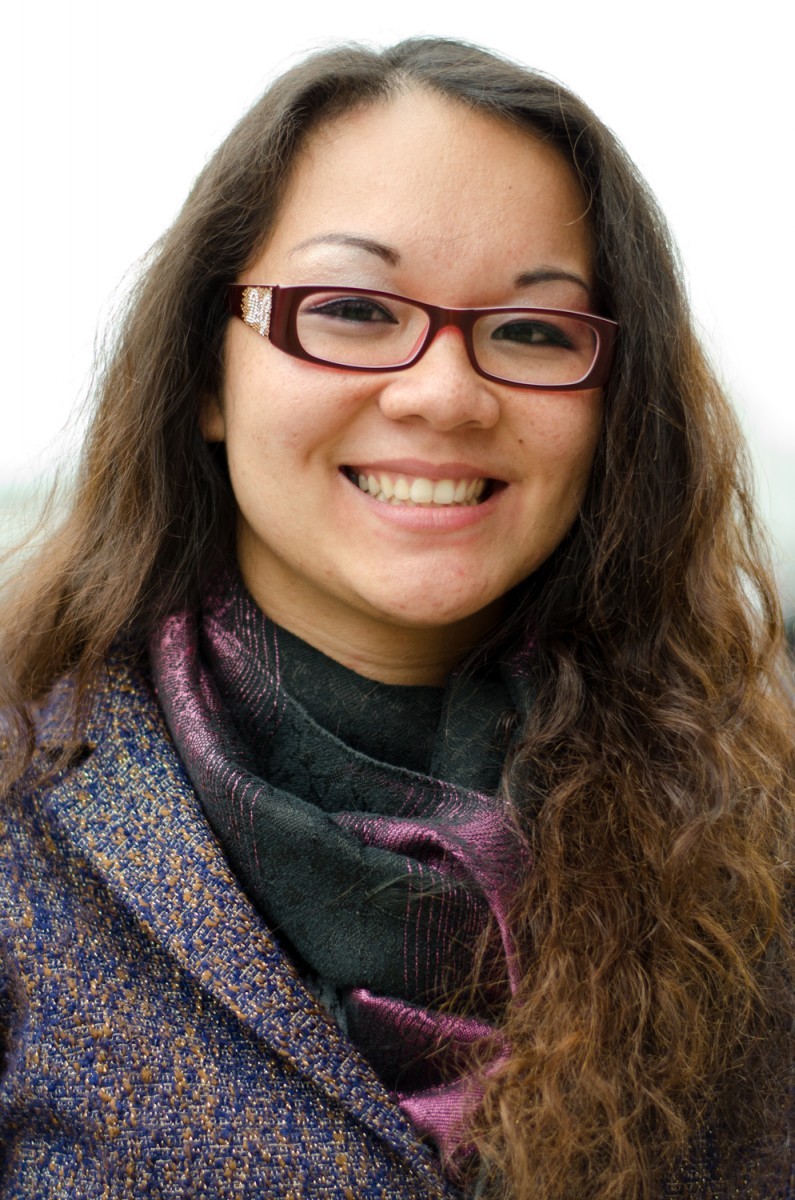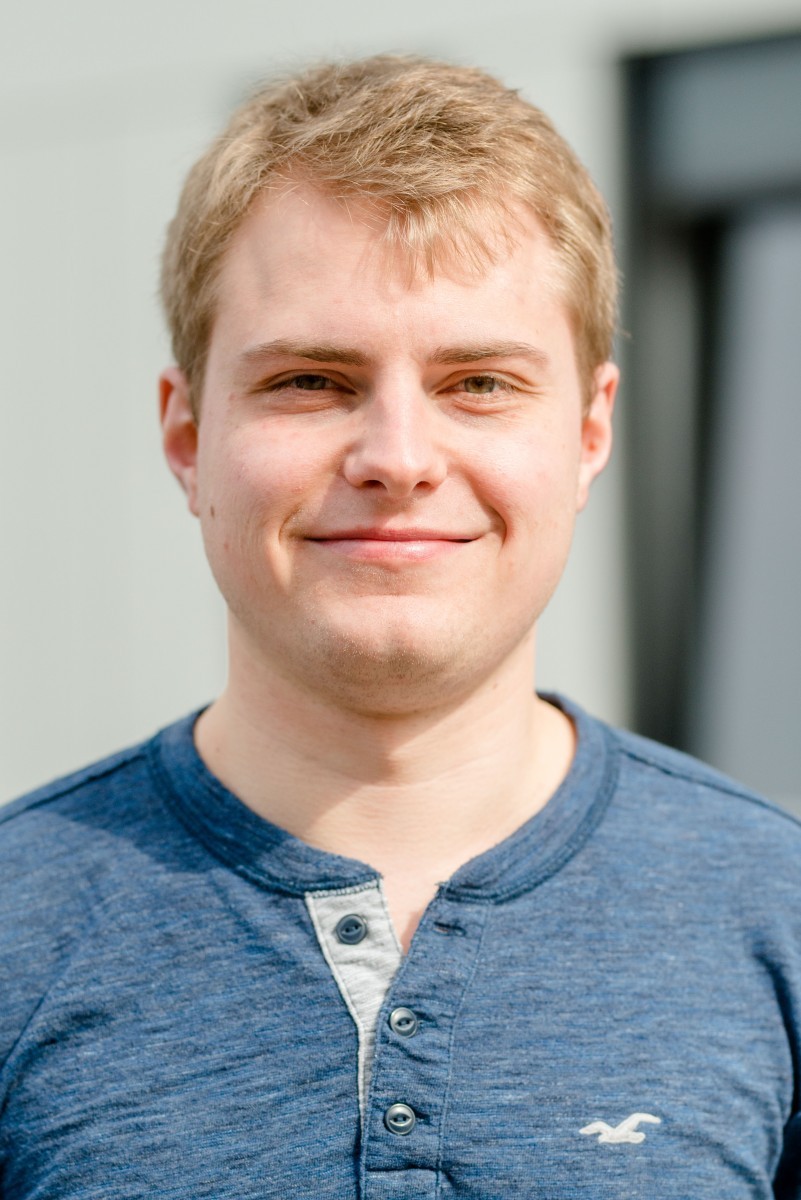
Luzminda Wenzel is a second-year student of Classical Philology, specialising in Ancient Greek. She is pursuing the Master of Arts degree. In addition, she is pursuing the Master of Education degree with the subjects Latin and German.
What made you choose this degree programme?
In my previous degree course (Management and Economics), I spent a semester abroad and learned modern Greek. In Greece, I developed an interest in the Greek culture, which is why I decided to enrol in Classical Philology after my return. Seeing as Latin had been my favourite subject in school, I had no reservations against ancient languages.
In which respect have or haven’t your expectations been fulfilled?
The RUB provides Latin language training at a very high level, preparing students extremely well for their later career. Greek Philology lectures, however, are not always conducted at a similarly high level, as many (Latin) students consider Greek a necessary evil that they have to get over and done with. For that reason, students actually interested in the subject often find it difficult to actively contribute to making the courses interesting.
Which aspect of your degree programme do you enjoy most?
I like a lot that we are a small seminar where everybody knows everybody else. The students are taken very seriously by the lecturers, which is reflected in the fact that students are routinely involved in research projects. Many research projects and areas of specialisation are met with the lecturers' approval and are competently supported. Students pursuing the Master of Education degree with the aim of becoming teachers receive most comprehensive support.
What has been your biggest challenge to date?
The degree programme as such poses a challenge that you must want to face. In the early stages, especially, you might stumble due to a lack of that kind of discipline that is indispensable when studying this subject. I know of other degree programmes where it is possible to obtain the necessary credits/pass exams even if studying only a few weeks beforehand. In Classical Philology, this strategy is doomed to fail. You need to understand that, in Classical Philology, ongoing revisions must become a matter of course, in order to successfully complete the degree.
What would you like to become after completing your degree?
Seeing as I've been working as student assistant at the Classical Philology seminar, I could well imagine pursuing an academic career at a university. But because of the positive experiences I made during my basic internships, I would rather become a teacher for German and Latin (and, if possible, Ancient Greek).
Which advice would you like to give to students who consider enrolling in this degree programme?
With diligence and passion for the ancient languages, you will be able to successfully complete a demanding degree programme that will broaden your horizons. My advice is: don't forget to pursue your own interests within the framework of the degree programme. And last but not least: don't consider yourself socially impaired nerds just because you're studying Latin or Greek!

Tobias Nitschke is a sixth- year student of Classical Philology. He is pursuing the Master of Arts degree - 2 -subject programme. Tobias´ other discipline is History.
What made you choose this degree programme?
Even back in school, I was interested in the Latin language. By deciphering Cicero, Caesar and Ovid, I had the feeling I was getting closer to antiquity; moreover, I considered my acquisition of Latin language skills added value for my studies of history – after all, they enable me to read primary “unadulterated” sources.
In which respect have or haven’t your expectations been fulfilled?
Classical philology has turned out to be a double-edged sword. But reading Latin literature is still a lot of fun. However, I feel much further removed from antiquity than ever before. This is not due to the discipline itself or due to the way it is taught; rather, it is because of the complexity of antiquity and because of our notion of it, which requires profound reflexion.
Which aspect of your degree programme do you enjoy most?
The discipline’s main attractions are the aspects listed in answer to question 2. Studies of the Latin language challenge us to reflect on our notion of antiquity, and therefore to reflect on ourselves – a process in which we learn to approach problems from a different perspective and to consider current issues in a more nuanced manner. Moreover, the plethora of content matters discussed in Latin literature inspires me time and again to study new topics and to gain interesting insights into all kinds of academic disciplines. And finally, my degree course furnishes me with a certain linguistic awareness and an analytic view of language per se, which is invaluable when learning other, “living” languages.
What has been your biggest challenge to date?
The greatest challenge has been to leave “school Latin” behind and to create a translation that meets all requirements. After all, it is not enough to provide a translation that is appropriate in grammatical and linguistic terms; it has to be put in the right context and has to match the respective genre. This is probably a challenge that all philologists struggle with in the course of their careers.
What would you like to become after completing your degree?
I would like to enter the diplomatic service after graduation. Here, I could combine the analytic mindset that I have internalised during my classical philology degree course with my interest in politics, law and economics, and utilise my foreign language skills efficiently, the acquisition of which has been greatly facilitated by my Latin degree.
Which advice would you like to give to students who consider enrolling in this degree programme?
You need the unconditional will to tough it out and never give up, despite many setbacks. Add a spoonful of language awareness and a pinch of understanding of antiquity: there you go, that’s your gateway to the classical philology degree.





